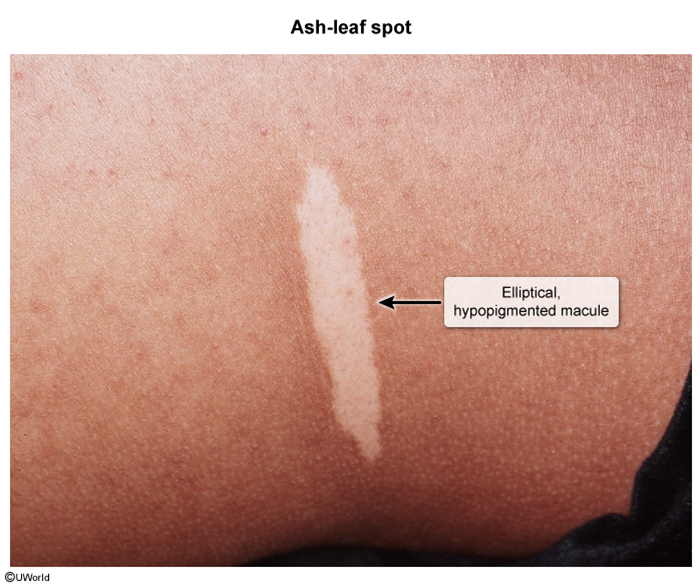Tuberous Sclerosis Complex
Article Sections
Introduction
Tuberous sclerosis complex (TSC) is a genetic neurocutaneous (eg, often affecting the skin and brain) disorder characterized by the growth of benign tumors in various organs of the body.
Pathophysiology
TSC is an autosomal dominant disorder caused by a loss-of-function mutation in TSC1 or TSC2, tumor suppressor genes responsible for encoding hamartin and tuberin, respectively. In general, these proteins form the tuberin-hamartin complex, which plays a role in regulating cell growth by limiting signaling to the mTOR pathway. In patients with TSC, dysregulation and enhanced signaling of the mTOR pathway due to the mutated tuberin-hamartin complex leads to unrestricted cellular proliferation and tumor formation (eg, hamartomas) in various tissues.
Pathology
The hallmark pathological feature of TSC is the presence of
Continue Learning with UWorld
Get the full Tuberous Sclerosis Complex article plus rich visuals, real-world cases, and in-depth insights from medical experts, all available through the UWorld Medical Library.
Unlock Full AccessImages
